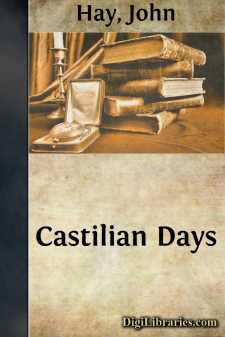Categories
- Antiques & Collectibles 13
- Architecture 36
- Art 48
- Bibles 22
- Biography & Autobiography 813
- Body, Mind & Spirit 142
- Business & Economics 28
- Children's Books 16
- Children's Fiction 13
- Computers 4
- Cooking 94
- Crafts & Hobbies 4
- Drama 346
- Education 46
- Family & Relationships 57
- Fiction 11829
- Games 19
- Gardening 17
- Health & Fitness 34
- History 1377
- House & Home 1
- Humor 147
- Juvenile Fiction 1873
- Juvenile Nonfiction 202
- Language Arts & Disciplines 88
- Law 16
- Literary Collections 686
- Literary Criticism 179
- Mathematics 13
- Medical 41
- Music 40
- Nature 179
- Non-Classifiable 1768
- Performing Arts 7
- Periodicals 1453
- Philosophy 64
- Photography 2
- Poetry 896
- Political Science 203
- Psychology 42
- Reference 154
- Religion 513
- Science 126
- Self-Help 84
- Social Science 81
- Sports & Recreation 34
- Study Aids 3
- Technology & Engineering 59
- Transportation 23
- Travel 463
- True Crime 29
The Bread-winners A Social Study
by: John Hay
Description:
Excerpt
I.
A MORNING CALL
A French clock on the mantel-piece, framed of brass and crystal, which betrayed its inner structure as the transparent sides of some insects betray their vital processes, struck ten with the mellow and lingering clangor of a distant cathedral bell. A gentleman, who was seated in front of the fire reading a newspaper, looked up at the clock to see what hour it was, to save himself the trouble of counting the slow, musical strokes. The eyes he raised were light gray, with a blue glint of steel in them, shaded by lashes as black as jet. The hair was also as black as hair can be, and was parted near the middle of his forehead. It was inclined to curl, but had not the length required by this inclination. The dark brown mustache was the only ornament the razor had spared on the wholesome face, the outline of which was clear and keen. The face suited the hands—it had the refinement and gentleness of one delicately bred, and the vigorous lines and color of one equally at home in field and court; and the hands had the firm, hard symmetry which showed they had done no work, and the bronze tinge which is the imprint wherewith sky and air mark their lovers. His clothes were of the fashion seen in the front windows of the Knickerbocker Club in the spring of the year 187-, and were worn as easily as a self-respecting bird wears his feathers. He seemed, in short, one of those fortunate natures, who, however born, are always bred well, and come by prescription to most of the good things the world can give.
He sat in a room marked, like himself, with a kind of serious elegance—one of those apartments which seem to fit the person like a more perfect dress. All around the walls ran dwarf book-cases of carved oak, filled with volumes bound in every soft shade of brown and tawny leather, with only enough of red and green to save the shelves from monotony. Above these the wall space was covered with Cordovan leather, stamped with gold fleurs-de-lis to within a yard of the top, where a frieze of palm-leaves led up to a ceiling of blue and brown and gold. The whole expression of the room was of warmth and good manners. The furniture was of oak and stamped leather. The low book-cases were covered with bronzes, casts, and figurines, of a quality so uniformly good that none seemed to feel the temptation either to snub or to cringe to its neighbor. The Owari pots felt no false shame beside the royal Satsuma; and Barbédienne's bronzes, the vases of Limoges and Lambeth and bowls from Nankin and Corea dwelt together in the harmony of a varied perfection.
It was an octagon room, with windows on each side of the fire-place, in which a fire of Ohio coal was leaping and crackling with a cheerful and unctuous noisiness. Out of one window yon could see a pretty garden of five or six acres behind the house, and out of the other a carefully kept lawn, extending some hundred yards from the front door to the gates of hammered iron which opened upon a wide-paved avenue....






